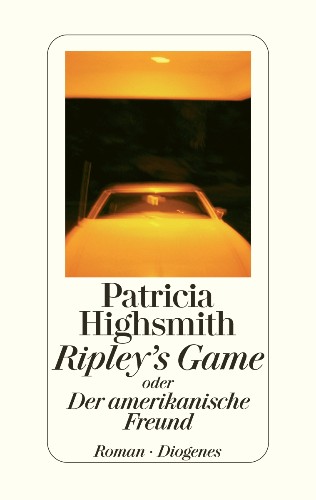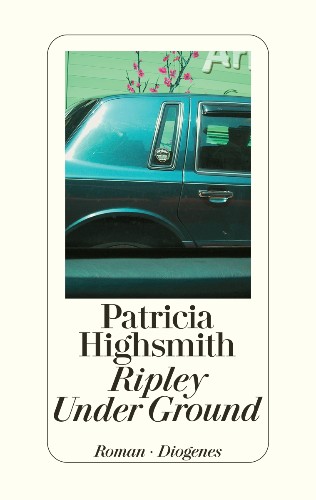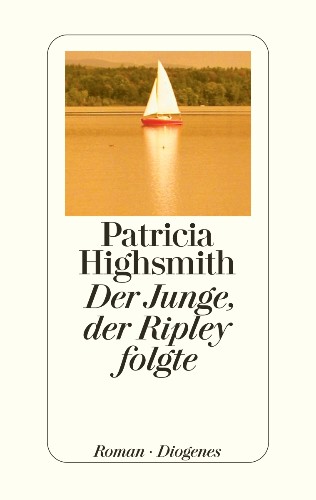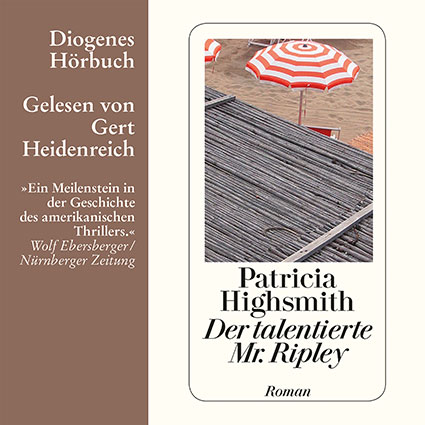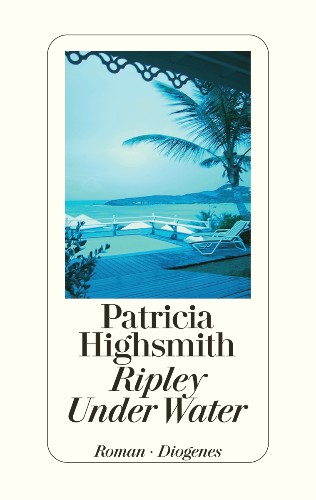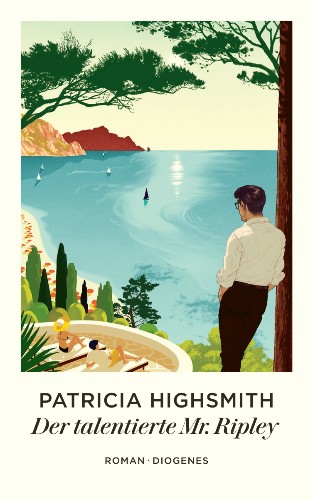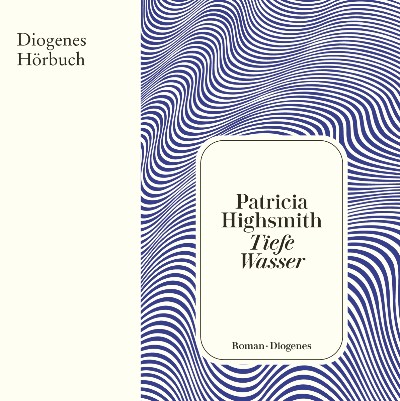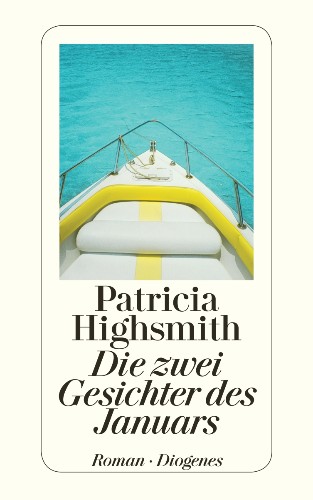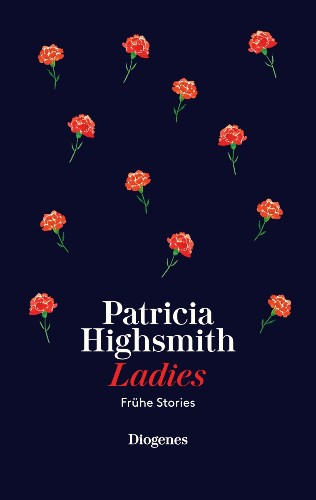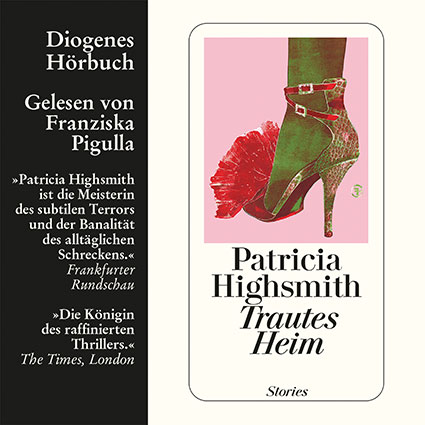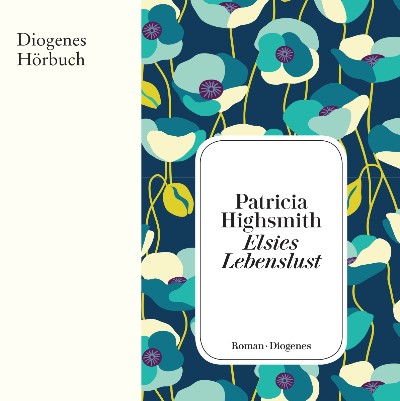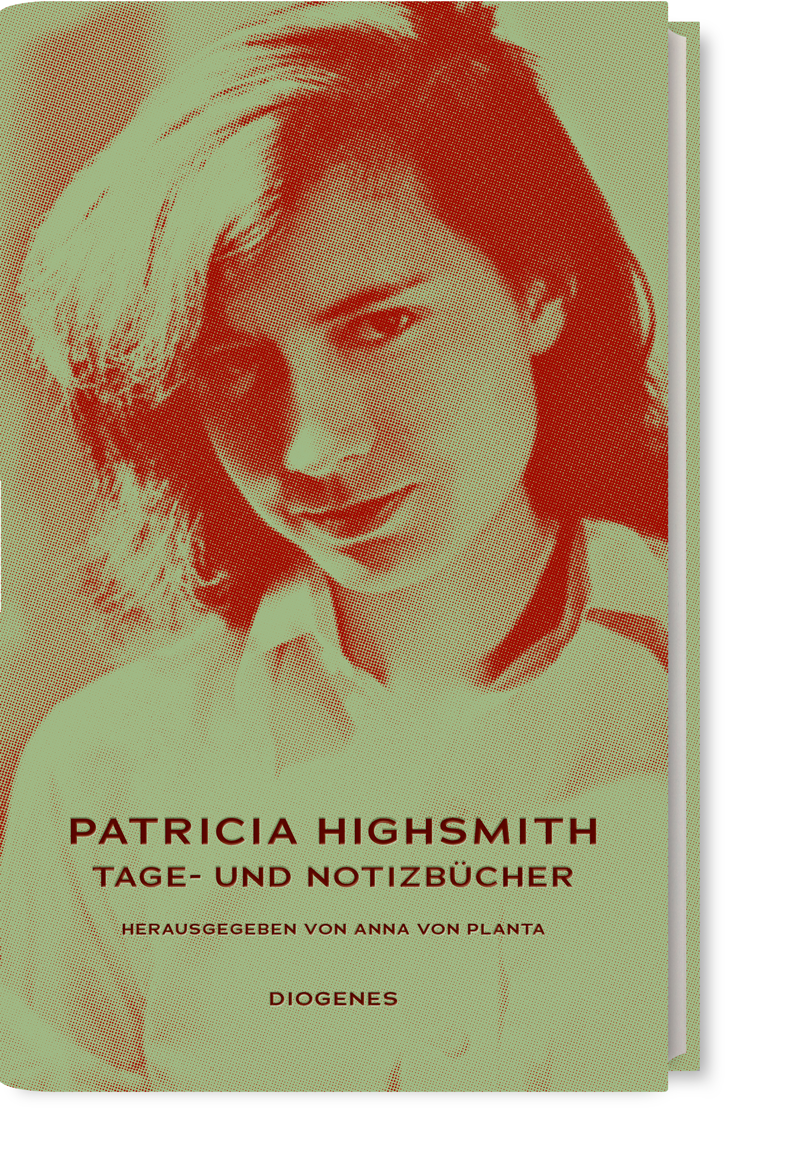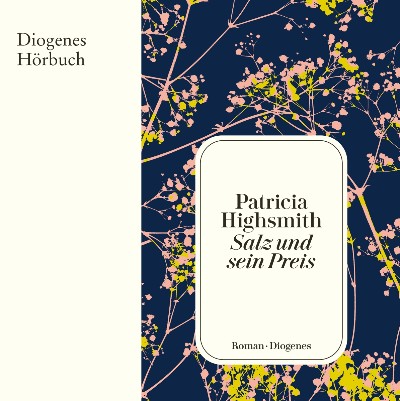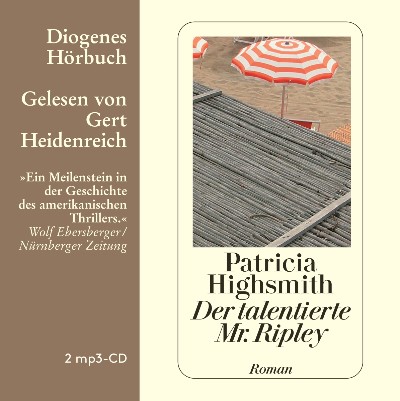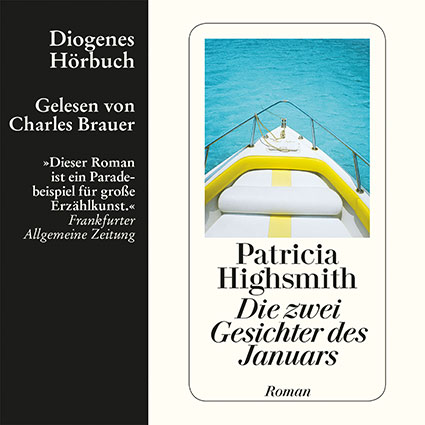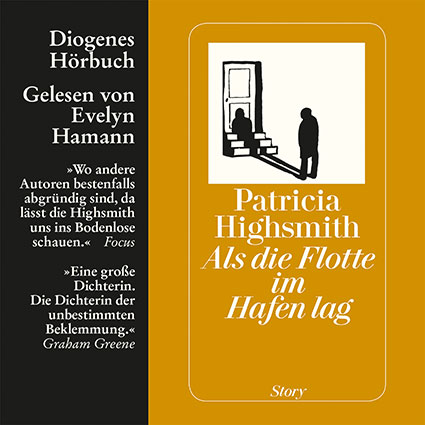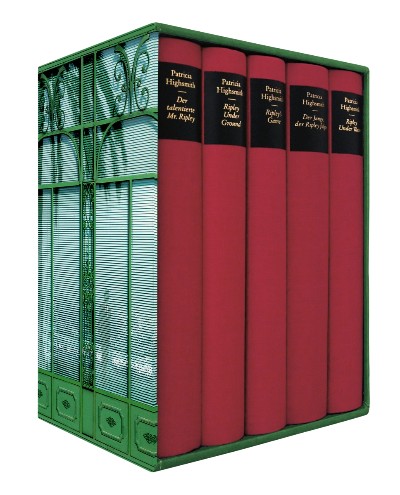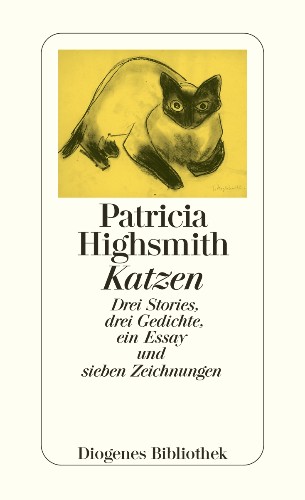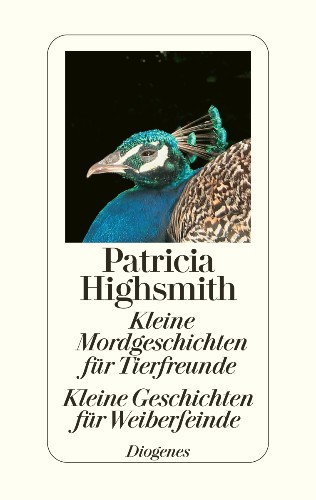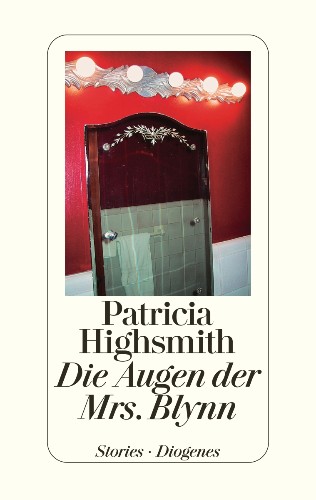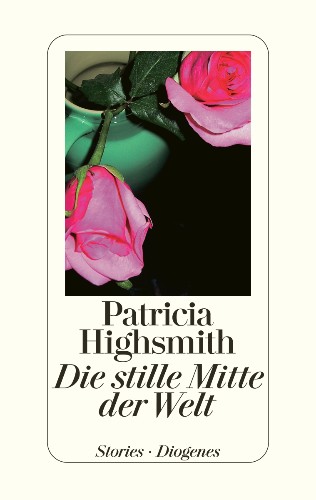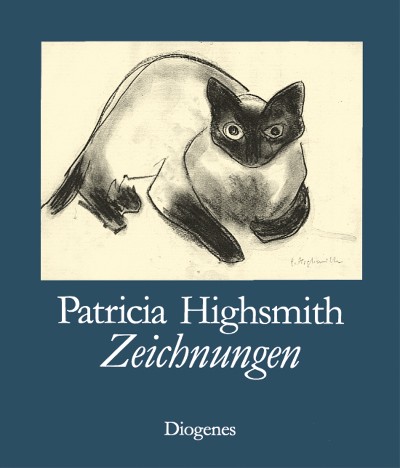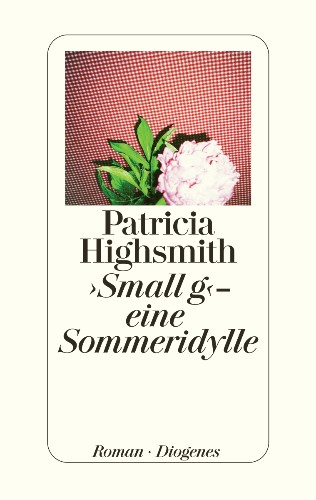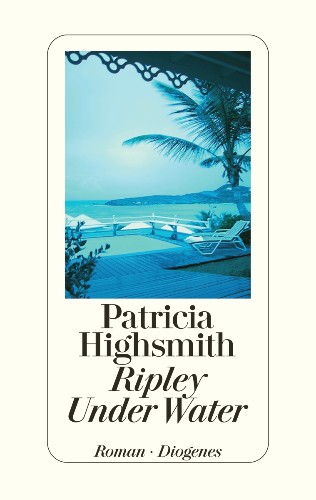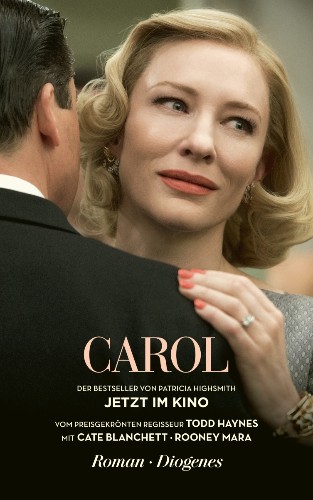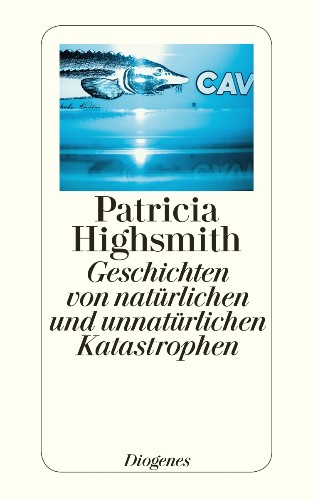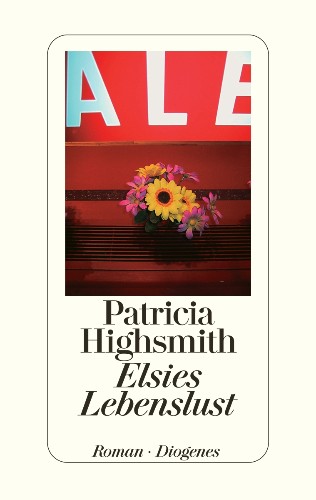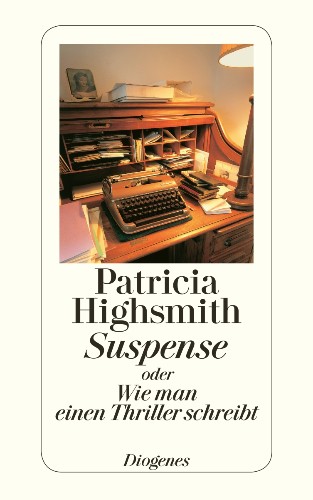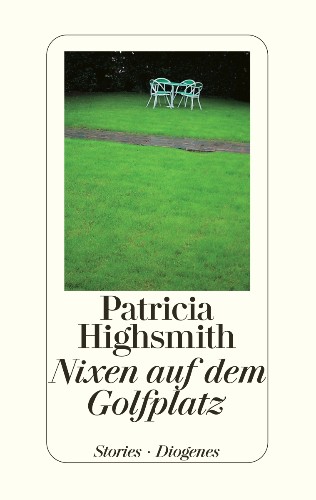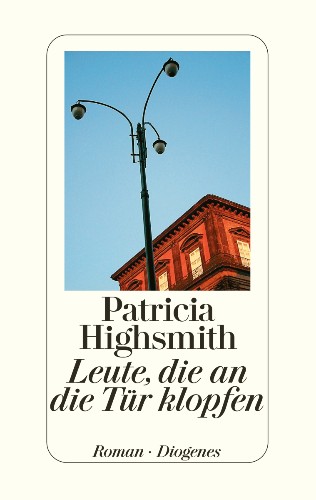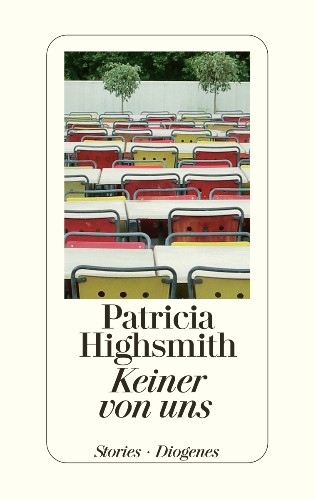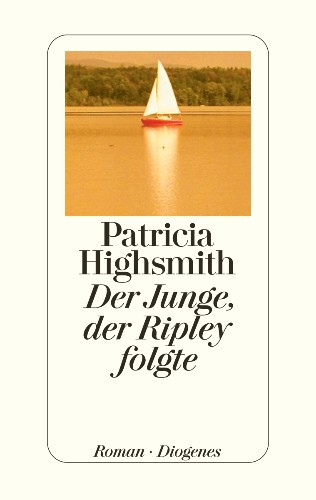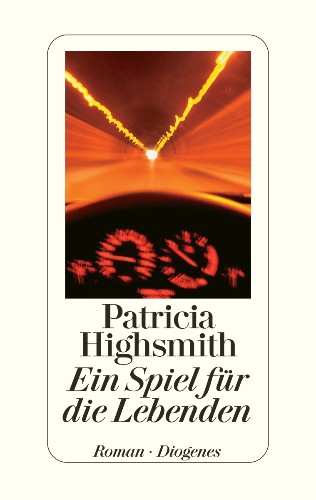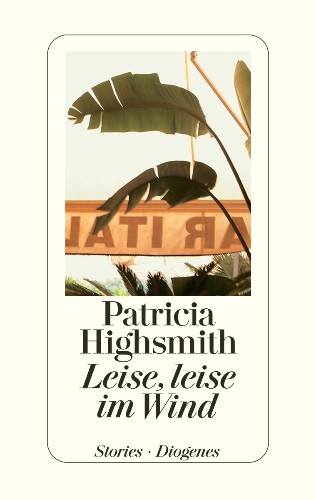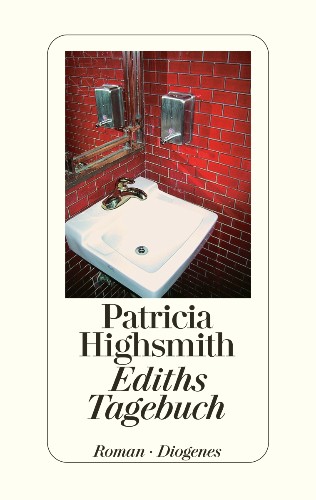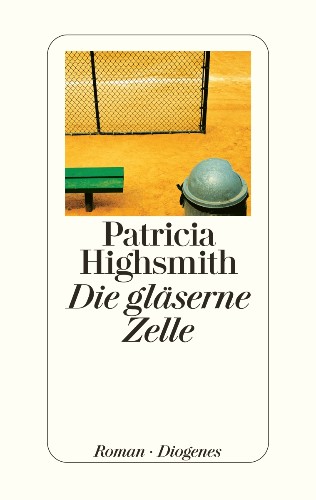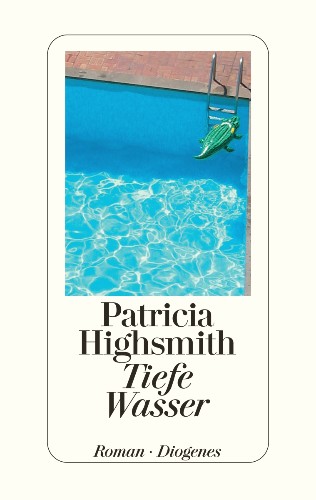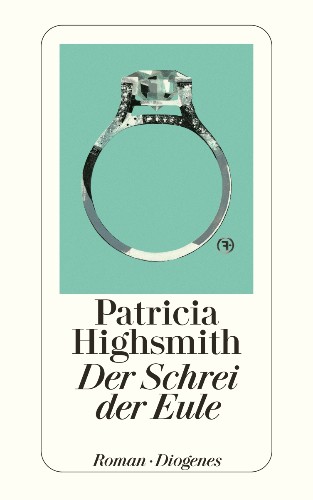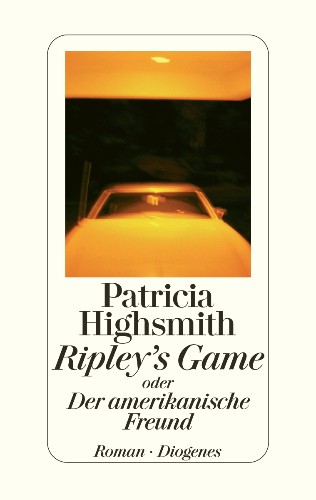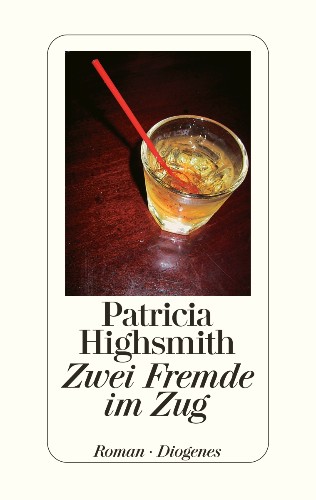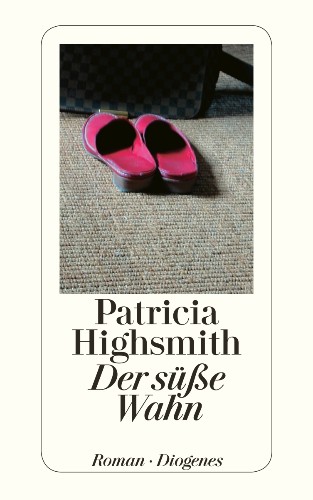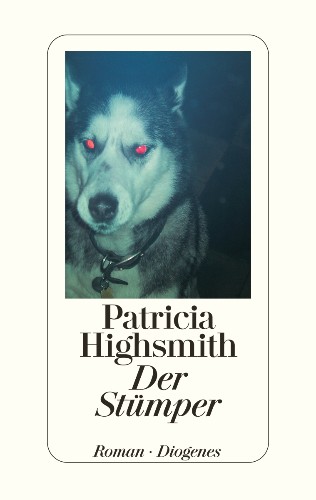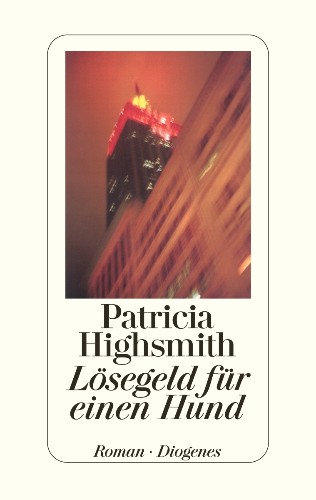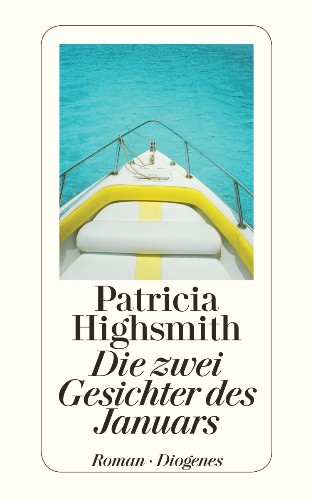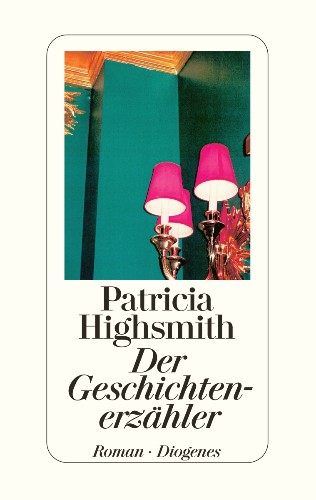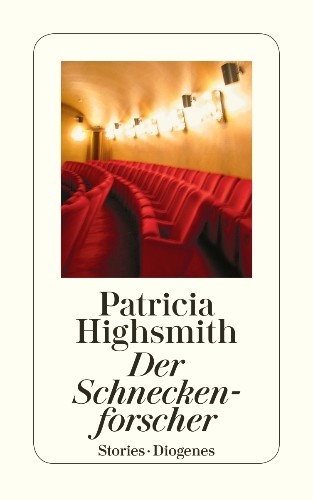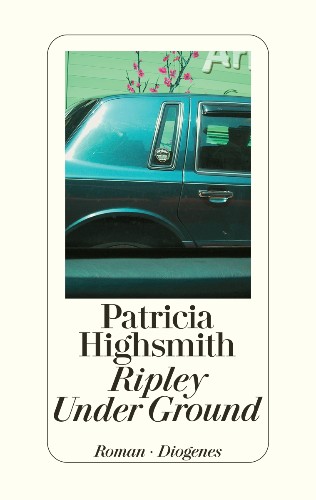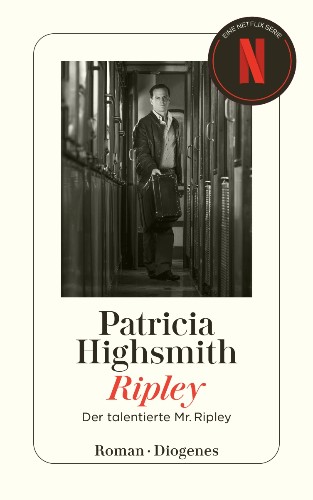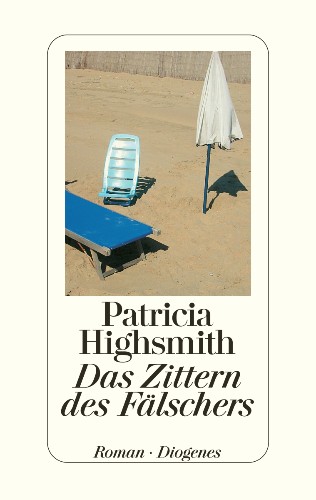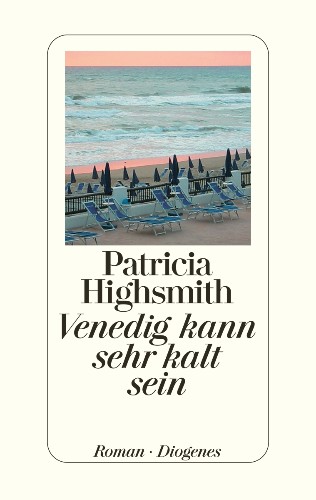Filter
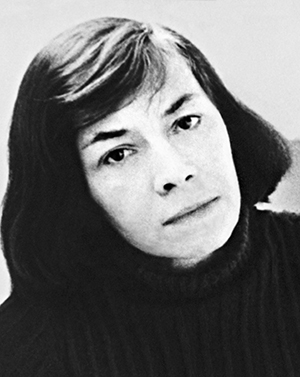
Patricia Highsmith
Patricia Highsmith (1921 – 1995), born in Fort Worth, Texas, grew up in Texas and New York and studied Literature and Zoology. She wrote her first short stories while still in high school and initially earned a living as a comic book writer. She had her first international hit in 1950 with her debut novel Strangers on a Train, and the film adaptation by Alfred Hitchcock catapulted her to worldwide fame. Patricia Highsmith died in Locarno in 1995.
- Carol-Kinofilm von Todd Haynes bekommt ›Preis der Frankfurter Buchmesse‹ als ›beste literarische Verfilmung‹, 2015
- ›Finnischer Krimipreis‹ der Suomen dekkariseura für ihr Gesamtwerk, 1993
- ›Officier dans l'Ordre des Arts et des Lettres‹, 1990
- ›Prix Littéraire‹ des Festival du cinéma américain von Deauville, 1987
- ›Schwedischer Krimipreis‹ in der Kategorie ›Grand Master‹ der Svenska Deckarakademin als Auszeichnung für das Lebenswerk der Autorin, 1979
- ›Grand Prix de l'Humour Noir‹ für L'Amateur d'escargot (dt. Der Schneckenforscher; Original: The Snail Watcher), 1975
- ›Dagger Award‹ in der Kategorie ›Best Foreign Novel‹ für The Two Faces of January (dt. Unfall auf Kreta/Die zwei Gesichter des Januars), 1964
- ›Grand prix de littérature policière‹ in der Kategorie ›International‹ für Plein Soleil – Monsieur Ripley (dt. Der talentierte Mr. Ripley; Original: The Talented Mr. Ripley), 1957
- ›O. Henry-Preis‹ in der Kategorie ›Best First-Published Story‹ für The Heroine (dt. Die Heldin. Dt. in: Der Schneckenforscher; in Original: The Snail Watcher), 1946
- Ripley, Steven Zaillian, 2024
- Deep Water, Adrian Lyne, 2021
- Loving Highsmith, Eva Vitija, 2021
- A Kind Of Murder, Andy Goddard, 2016
- Carol / Salz und sein Preis, Todd Haynes, 2015
- The two faces of January, Hossein Amini, 2014
- Cry of the Owl, Jamie Thraves, 2009
- Ripley under Ground, Roger Spottiswoode, 2005
- The Talented Mr. Ripley, Anthony Minghella, 1999
- Once You Meet a Stranger, Tommy Lee Wallace, 1996
- Trip nach Tunis, Peter Goedel, 1993
- Der Geschichtenerzähler, Rainer Boldt, 1991
- L´Amateur de Frissons, Roger Andrieux, 1989
- Le jardin des Disparus, Mai Zetterling, 1989
- L´Epouvantail, Maroun Bagdad, 1989
- A Curious Suicide, Bob Biermann, 1989
- La ferme du malheur, Samuel Fuller, 1989
- Legitime Défense, John Berry , 1989
- Le cri du hibou, Claude Chabrol, 1987
- Die zwei Gesichter des Januars, Wolfgang Storch, 1986
- Tiefe Wasser, Franz Peter Wirth, 1983
- Ediths Tagebuch, Hans Werner Geissendörfer, 1983
- Eaux profondes, Michel Deville, 1981
- Dites-lui que je l’aime, Claude Miller, 1977
- Die gläserne Zelle, Hans Geissendörfer, 1977
- L’ami americain, Wim Wenders, 1976
- Once You Kiss a Stranger, Robert Sparr, 1969
- Le meurtrier; Enough Rope, Claude Autant-Lara, 1963
- Le meurtrier, Claude Autant-Lara, 1962
- Plein soleil, René Clément, 1959
- Strangers on a Train, Alfred Hitchcock, 1951
»Miss Highsmith is a novelist whose books one can re-read many times. There are very few of whom one can say that. She has created a world of her own - a world claustrophobic and irrational which we enter each time with a sense of personal danger. [...] Highsmith is the poet of apprehension.«
»For some unknown reason Patricia Highsmith, one of the most important modern narrators, is regarded as an author of crime novels. She is both.«
»To read Highsmith’s stories is a delight, a real celebration.«
»In the best stories, there is a clarity in terms of composition and a unity in tone that reminds you of Edgar Allan Poe, staged with a backdrop that evokes Edward Hopper.«
»Ripley has always been a source of inspiration for cinema, which is what makes him lively, shining and omnipresent still today.«
»The grande dame of the thriller turns 100 and is more up to date than ever. Her creatures are patrolling the moral low life of our nature, committing their cruelest crimes.«
»Truly, Highsmith, who was an avid reader of Dostoevsky and Kierkegaard, illuminates the shimmering shades of good and evil.«
»Highsmith's unfathomable nature is every bit as deep as Fyodor Dostoevsky or Joseph Conrad’s hellscapes.«
»... queen of psychological suspense.«
»Patricia Highsmith will take you on a journey, into temptation, passion, guilt, cruelty and danger. She is the voice that dogs you in the dark, seductive and persuasive, nightmarish yet irresistible.«
»I love the addictive quality of Highsmith's novels, her ›low hypnotic murmur‹ or the feverish, lyrical prose in Carol.«
»Although I'm a great admirer of Patricia Highsmith's thrillers and the complex moral landscape she explores, for me the high watermark will always be Carol, aka The Price of Salt«
»Highsmith (1921-1995) introduced new layers of psychological complexity to the crime thriller, one key reason why filmmakers continue to be so attracted to her.«
»Whereas other crime writers’ work often becomes dated or seems tied to a specific period or place, Highsmith’s books have enduring and universal appeal.«
»We are often drawn into Highsmith’s claustrophobic world like flies tentatively exploring the gossamer strands of a spider’s web.«
»The canonization of Patricia Highsmith – doyenne of the psychological suspense novel, depressive homosexual, mean drunk, and one of the greatest, darkest American storytellers since Poe – has officially begun.«
»When you read one of Highsmith’s stories, you’ve given her permission to follow you, catch you, take you apart. Get ready to run.«
»The 21st century – when imposture is at the heart of online life, when self-identification precedes authenticity – seems more and more like the age of Tom Ripley, Highsmith’s greatest creation.«
»She revolutionized the detective novel by inventing, just after the Second World War, the psychological thriller.«
»Nobody describes the horror of murder more vividly.«
»And ever since Hitchcock’s classic Strangers on a Train (1951), Highsmith grows more filmable every year, perhaps because our world is so swiftly catching up with the sort of people she wrote about: men and women who lie, commit forgery, and develop manipulative fictions to damage everyone around them.«
»Her works keep their powerful attraction intact, the sensation that, by them, we draw closer to the abyss from which we are trying to run away from.«
»Reading her is like having a devil on your shoulder arguing that decency and good citizenship are boring and cowardly, and so compellingly that you’ve acquiesced before you know it.«
»She was also the first to make short work of the hitherto almost sacred dualism of good and bad, and cancelled out the traditional ending«
»With a concise and minimalistic style, inspired by Maupassant, Highsmith draws a character who is the pinnacle of the inversion of values postulated by Nietzsche and who tramples traditional values.«
»Highsmith wanted to show the murderers, almost murderers and murder fantasists from the inside because it rarely shows from the outside.«
»The constant inner apprehension, which one is subject to while reading, does not end after the last sentence.«
»You should read Highsmith because she dared to look into the abyss where our blackest thoughts reside.«
»The notion that her books do not belong on those shelves because the complexity of their characters or the acuity with which they interrogate social mores, is laughable – for this is exactly what the very best crime novels do.
It is why they endure. It is why we find them irresistible.
And it is why we will likely be reading Patricia Highsmith for the next one hundred years, too.«
»The profusion of Ripley-esque stories is perhaps no coincidence. For the con-artistry of Ripley speaks more than ever to our Instagram age, where the carefully-curated and crafted image trumps reality.«
»Highsmith’s writing style keeps you on the edge of your seat.«
»Tense, compelling and disturbing, though her subject matter is, Highsmith’s writing is sharp and witty – and incredibly readable.«
»Miss Highsmith is a novelist whose books one can re-read many times. There are very few of whom one can say that. She has created a world of her own - a world claustrophobic and irrational which we enter each time with a sense of personal danger. [...] Highsmith is the poet of apprehension.«
»For some unknown reason Patricia Highsmith, one of the most important modern narrators, is regarded as an author of crime novels. She is both.«
»To read Highsmith’s stories is a delight, a real celebration.«
»In the best stories, there is a clarity in terms of composition and a unity in tone that reminds you of Edgar Allan Poe, staged with a backdrop that evokes Edward Hopper.«
»Ripley has always been a source of inspiration for cinema, which is what makes him lively, shining and omnipresent still today.«
»The grande dame of the thriller turns 100 and is more up to date than ever. Her creatures are patrolling the moral low life of our nature, committing their cruelest crimes.«
»Truly, Highsmith, who was an avid reader of Dostoevsky and Kierkegaard, illuminates the shimmering shades of good and evil.«
»Highsmith's unfathomable nature is every bit as deep as Fyodor Dostoevsky or Joseph Conrad’s hellscapes.«
»... queen of psychological suspense.«
»Patricia Highsmith will take you on a journey, into temptation, passion, guilt, cruelty and danger. She is the voice that dogs you in the dark, seductive and persuasive, nightmarish yet irresistible.«
»I love the addictive quality of Highsmith's novels, her ›low hypnotic murmur‹ or the feverish, lyrical prose in Carol.«
»Although I'm a great admirer of Patricia Highsmith's thrillers and the complex moral landscape she explores, for me the high watermark will always be Carol, aka The Price of Salt«
»Highsmith (1921-1995) introduced new layers of psychological complexity to the crime thriller, one key reason why filmmakers continue to be so attracted to her.«
»Whereas other crime writers’ work often becomes dated or seems tied to a specific period or place, Highsmith’s books have enduring and universal appeal.«
»We are often drawn into Highsmith’s claustrophobic world like flies tentatively exploring the gossamer strands of a spider’s web.«
»The canonization of Patricia Highsmith – doyenne of the psychological suspense novel, depressive homosexual, mean drunk, and one of the greatest, darkest American storytellers since Poe – has officially begun.«
»When you read one of Highsmith’s stories, you’ve given her permission to follow you, catch you, take you apart. Get ready to run.«
»The 21st century – when imposture is at the heart of online life, when self-identification precedes authenticity – seems more and more like the age of Tom Ripley, Highsmith’s greatest creation.«
»She revolutionized the detective novel by inventing, just after the Second World War, the psychological thriller.«
»Nobody describes the horror of murder more vividly.«
»And ever since Hitchcock’s classic Strangers on a Train (1951), Highsmith grows more filmable every year, perhaps because our world is so swiftly catching up with the sort of people she wrote about: men and women who lie, commit forgery, and develop manipulative fictions to damage everyone around them.«
»Her works keep their powerful attraction intact, the sensation that, by them, we draw closer to the abyss from which we are trying to run away from.«
»Reading her is like having a devil on your shoulder arguing that decency and good citizenship are boring and cowardly, and so compellingly that you’ve acquiesced before you know it.«
»She was also the first to make short work of the hitherto almost sacred dualism of good and bad, and cancelled out the traditional ending«
»With a concise and minimalistic style, inspired by Maupassant, Highsmith draws a character who is the pinnacle of the inversion of values postulated by Nietzsche and who tramples traditional values.«
»Highsmith wanted to show the murderers, almost murderers and murder fantasists from the inside because it rarely shows from the outside.«
»The constant inner apprehension, which one is subject to while reading, does not end after the last sentence.«
»You should read Highsmith because she dared to look into the abyss where our blackest thoughts reside.«
»The notion that her books do not belong on those shelves because the complexity of their characters or the acuity with which they interrogate social mores, is laughable – for this is exactly what the very best crime novels do.
It is why they endure. It is why we find them irresistible.
And it is why we will likely be reading Patricia Highsmith for the next one hundred years, too.«
»The profusion of Ripley-esque stories is perhaps no coincidence. For the con-artistry of Ripley speaks more than ever to our Instagram age, where the carefully-curated and crafted image trumps reality.«
»Highsmith’s writing style keeps you on the edge of your seat.«
»Tense, compelling and disturbing, though her subject matter is, Highsmith’s writing is sharp and witty – and incredibly readable.«

